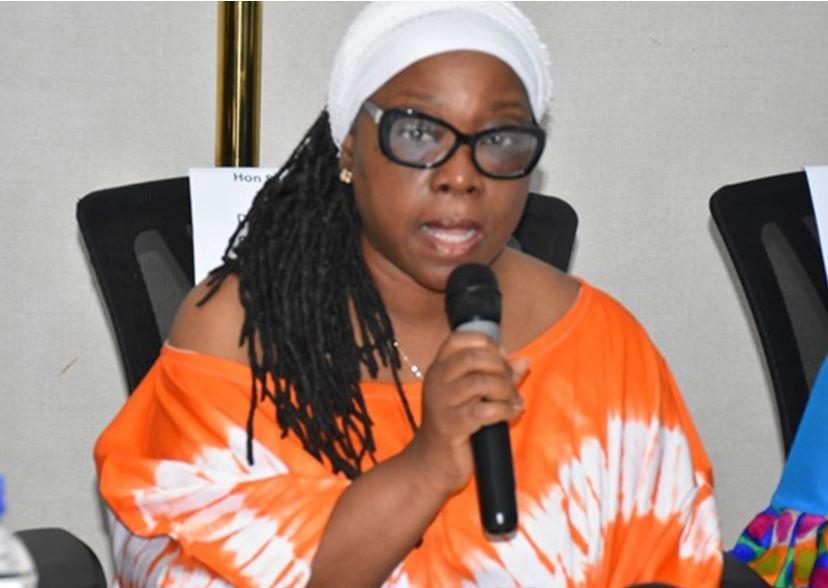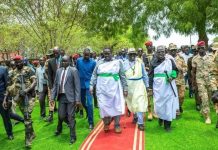Africa-Press – South-Sudan. A United Nations representative has warned countries receiving aid not to depend on humanitarian organisations for development.
The Deputy Special Representative of the Secretary-General, Resident and Humanitarian Coordinator (DSRSG/HR/RC), Sara Beysolow, said humanitarian organisations are only mandated to save the lives of vulnerable people and not champion development projects.
“Humanitarians feed the hungry and help to keep the starving alive. We try to cloth those who do not have clothes, give shelter to keep people alive so that development can come. [We then] empower families, build reliance so that people have opportunities to live in a developed country and to achieve sustainable goals,” she clarified.
Addressing journalists in Juba on Saturday during the release of the Integrated Food Security Phase Classification (IPC), Beysolow hit at critics of aid organisations who, she said, often heap blame on such organisations without clearly understanding their mandates. She said such organisations only exist to provide a head start to communities facing the ramifications of catastrophes such as war, floods, and famine. She warned that countries that overly depend on aid are destined for failure.
For the past 10 years, South Sudan has been facing the challenge of forced displacement of a third of its population due to conflicts. As a consequence, there has been a food crisis that keeps coming up.
According to the new United Nations report on food security, food insecurity is likely to intensify by seven percent in the coming months across the country compared to 2021.
The joint report by the Food and Agriculture Organisation (FAO), the United Nations Children’s Fund (UNICEF) and the World Health Organisation (WHO) states that climate shocks such as floods and droughts, conflicts, and economic decline are worsening food insecurity in the country.
More than 80 per cent of the populations in six states are endangered. The affected states include Jonglei, Unity, Upper Nile, Lakes, Eastern Equatoria and Warrap State.
Aided
required urgently
UN agencies have emphasised that humanitarian assistance and livelihood support is needed to save lives in the worst affected areas across the nation.
These areas include Fangak, Canal/Pigi and Ayod counties in Jonglei State, Pibor county in the Greater Pibor Administrative Area, Cueibet and Rumbek North counties in the Lakes State, and Leer and Mayendit counties in the Unity State, with a combined total of 87,000 people are expected to be in a catastrophe of IPC Phase 5 acute food insecurity.
Beysolow warned that should the country fail to pursue peace at community levels, the nagging insecurity would never end.
“Reducing some national violence requires starting to empower families, empowering communities towards developing the country, having basic social services that will reduce the number of people who require humanitarian support,” she said.
She added, “We can’t continue to have a number of people who are food insecure when we have a South Sudan that has the land, water, and people who know how to farm and produce what is missing.’’
For More News And Analysis About South-Sudan Follow Africa-Press






